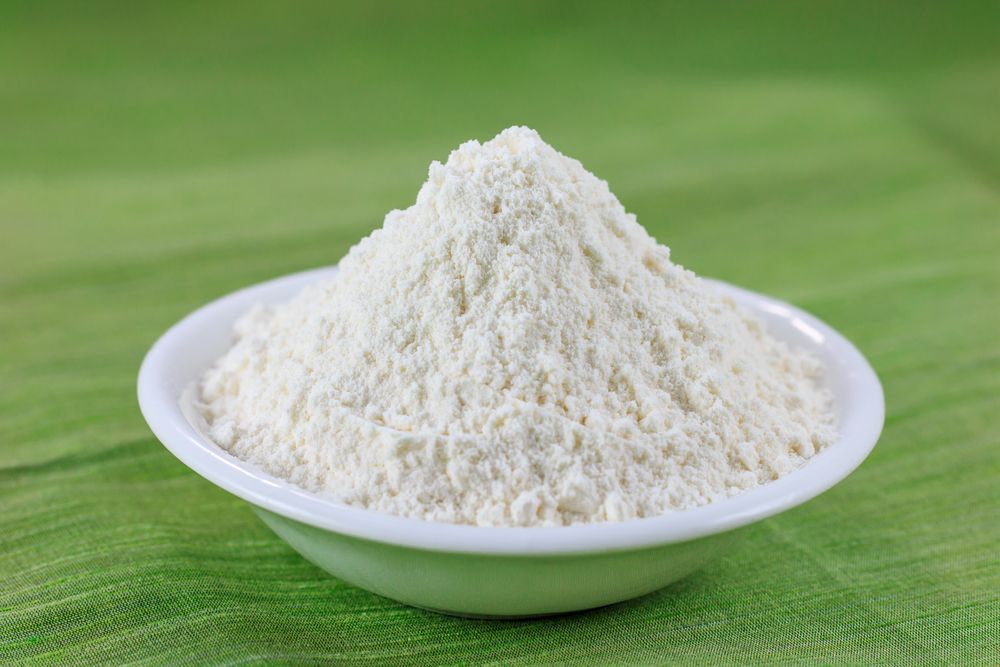While our chronological age is something we cannot change, our biological age remains more flexible. Our lifestyle, including the foods we consume, plays a significant role in dictating the pace of our biological aging. Consequently, how we appear and feel may not necessarily align with the number of years we have lived.
Danielle Crumble Smith, RD, a dietitian associated with Top Nutrition Coaching, expounds on this concept, stating, "Biological aging pertains to the gradual deterioration of functional attributes at the cellular and molecular levels, which can be influenced by lifestyle factors, including dietary choices."
Marlyne Perez, RDN, LD, a dietitian affiliated with Top Nutrition Coaching, emphasizes the significance of maintaining a balanced diet rich in antioxidants, essential fatty acids, vitamins, minerals, and fiber while minimizing the intake of processed foods, sugars, unhealthy fats, excessive sodium, and alcohol. This dietary approach is pivotal in promoting longevity by decelerating the aging process and fostering overall well-being.
Conversely, an unhealthy diet characterized by a deficiency in essential nutrients and antioxidants, coupled with an abundance of processed foods, sugars, and unhealthy fats, can lead to chronic inflammation, oxidative stress, compromised gut health, and metabolic complications, as noted by Perez. She further elaborates, stating, "These factors collectively hasten cellular damage, impair organ function, and elevate the risk of age-related ailments, thereby contributing to an accelerated biological age."
A diet brimming with nutrient-dense foods is instrumental in slowing down the biological clock. In light of this, we consulted two dietitians to identify the top foods that can expedite the aging process when consumed regularly. Nevertheless, it is essential to remember that indulging in these foods in moderation is acceptable—priority should be given to incorporating nutrient-rich options into your daily diet, reserving these choices for special occasions.
1) Sugary cereals

While cereal can serve as a nutritious breakfast option, many available in the market are laden with added sugars. Consuming a substantial portion of your daily calories in the form of sugar, particularly during the morning, can induce rapid spikes in blood glucose levels, prompting the body to swiftly release insulin in an attempt to regulate these sugar levels. As Marlyne Perez explains, "Over time, this consistent fluctuation in blood sugar and insulin levels may lead to insulin resistance and heightened oxidative stress, thereby contributing to an accelerated aging process within the body."
Furthermore, the regular consumption of high-sugar foods, such as sugary cereals, can contribute to weight gain and obesity—two conditions associated with various metabolic issues, including type 2 diabetes and cardiovascular diseases.
Remarkably, a high-sugar diet may also manifest itself on the skin. Excessive sugar reacts with proteins within the body, including collagen and elastin, through a process known as glycation. This process can culminate in the formation of Advanced Glycation End Products (AGEs), which render collagen and elastin rigid and less elastic, as elucidated in a 2021 review published in Experimental & Molecular Medicine. "The harm inflicted upon collagen and elastin, which are indispensable for maintaining youthful and resilient skin, manifests as premature signs of aging on the skin," according to Smith. She adds that this can result in the development of wrinkles and sagging skin.
2) Hot dogs and bacon

Enjoying a bacon, egg, and cheese sandwich on a weekday morning or indulging in a grilled hotdog at a summer cookout occasionally isn't a cause for concern. However, incorporating processed meats into your regular diet is not a wise choice.
Processed red meats are typically high in saturated fats and often contain preservatives such as nitrates. These elements can contribute to accelerated biological aging by promoting chronic inflammation and oxidative stress within the body, as explained by Smith. "These factors hasten cellular aging and elevate the risk of age-related ailments, including cardiovascular disease and certain types of cancer. Furthermore, the consumption of processed meats is associated with the formation of harmful compounds that can inflict damage to DNA and proteins, exacerbating the aging process."
A 2020 study published in the International Journal of Epidemiology revealed that consuming red or processed meat at least four times a week was linked to a 20% higher risk of colorectal cancer compared to consuming it less than twice a week.
3) Alcohol

Enjoying an occasional glass of wine with dinner or a cocktail during happy hour is unlikely to cause lasting harm. However, engaging in binge drinking regularly or making alcohol a consistent part of your diet can have adverse effects.
Alcohol can influence your chronological age in three primary ways. Firstly, it acts as a diuretic, promoting increased urination. This can lead to dehydration, resulting in dry and lackluster skin, along with an elevated likelihood of developing wrinkles and fine lines, as explained by Smith.
Secondly, "Alcohol impedes the absorption of essential nutrients such as vitamins B12 and folate, as well as antioxidants, compromising cellular health and contributing to cognitive decline. This elevates the risk of age-related neurological conditions like Alzheimer's and dementia," notes Smith.
Lastly, but of great importance, alcohol can inflict damage on the liver, including conditions such as fatty liver, hepatitis, and cirrhosis. "This impairs the liver's capacity to efficiently metabolize toxins and maintain overall bodily functions, potentially expediting the aging processes throughout the body," Smith warns.
4) Refined white flour

Foods such as white bread, bagels, pretzels, and pasta are primarily composed of refined grains, a type of grain stripped of the fiber and nutrients that render grains healthy. This refining process results in these foods having a high glycemic index, which can induce rapid spikes in both blood sugar and insulin levels. As a consequence, the abrupt rise and subsequent fall in blood sugar can incite oxidative stress and inflammation, hastening the process of cellular aging, as pointed out by Smith.
Moreover, the absence of fiber and essential nutrients in refined white flour, in contrast to whole grains, deprives the body of crucial anti-aging elements—such as B vitamins, antioxidants, vitamin E, and minerals—further contributing to the aging process.
5) Soda and other sugary drinks

Sugary beverages such as sodas and sweet tea, offer little to no nutritional value, and consistent consumption of these drinks has been associated with a range of health issues. This is primarily because all the calories in these beverages come from added sugars.
The consumption of sugar-laden drinks "contributes to the aging process at a biological level primarily due to their high sugar content, which results in increased oxidative stress, inflammation, and the formation of advanced glycation end products (AGEs)," as explained by Smith. These AGEs expedite cellular aging and tissue damage.
Excessive sugar intake can also lead to insulin resistance and the accumulation of fat, factors linked to obesity, type 2 diabetes, and cardiovascular diseases, all of which are signs of aging and shorter telomeres. It is worth noting that telomeres safeguard the ends of chromosomes, and their length serves as an indicator of cellular aging. A 2011 study published in The Journal of Nutritional Biochemistry connected unhealthy dietary habits to shorter telomeres.
Furthermore, Perez points out that "Soda contains phosphoric acid, which may hinder calcium absorption, potentially reducing bone mineral density and raising the risk of conditions like osteoporosis and age-related bone fractures."
6) Fried food

Fried foods, such as chicken nuggets, burgers, and fries, often contain trans fats, especially when cooking oils are repeatedly reused—a common practice in many fast-food establishments.
"These trans fats contribute to inflammation and oxidative stress within the body, processes that accelerate the aging of cells and raise the risk of age-related ailments like heart disease and diabetes," explains Smith.
The process of generating trans fats through oil reuse can be explained as follows: When oil is repeatedly heated, it goes through oxidation and thermal breakdown, as noted by Smith. "Repetitive heating causes structural changes in the unsaturated fatty acids present in the oil—and one of these changes can be the conversion of naturally occurring cis-fatty acids (common in most vegetable oils) into trans-fatty acids. Oils rich in unsaturated fats (such as soybean, sunflower, or corn oil, all commonly used for frying) are more susceptible to trans fat formation when subjected to excessive heat or reuse." Moreover, higher temperatures and prolonged heating durations increase the likelihood of trans fat formation.
7) Restaurant Foods

Even if you're not rushing to the drive-thru for a cheeseburger and fries, dining out at restaurants may not be the best choice for your health, especially as you get older.
"Restaurant meals, while convenient, can contribute to the aging process due to factors like the presence of unhealthy fats, including saturated and trans fats, which can lead to inflammation and an increased risk of age-related diseases," explains Perez. Furthermore, most of these dishes contain more sodium than you should consume in a day, and even seemingly savory restaurant options can be surprisingly high in sugar. "Restaurant meals often have significant amounts of added sugars and salt, which contribute to the risk of metabolic disorders like obesity and hypertension, known to accelerate the aging process," adds Smith.
Additionally, certain restaurant cooking methods, such as frying or grilling at high temperatures, can produce harmful compounds like AGEs and potentially carcinogenic substances, contributing to cellular damage and faster aging.
However, not all restaurant meals are detrimental to your longevity. Some establishments, like those approved by dietitians, prioritize fresh ingredients, employ healthier cooking techniques, and offer nutritious choices. "By making informed choices and selecting meals rich in vegetables, lean proteins, and whole grains while avoiding processed or fried foods, you can help minimize the potential negative effects on the aging process," advises Perez.
8) Deli meats

Ham, salami, and sliced turkey breast are all delectable components for sandwiches, but they should not become a daily staple in your diet. Deli meats, often laden with preservatives like sodium and nitrates, play a role in accelerating the biological aging process primarily by promoting oxidative stress and inflammation within the body, according to Smith. "These preservatives, combined with the AGEs generated during processing, have the potential to harm cells and tissues, expediting the aging process at the cellular level."
Furthermore, deli meats contain exceptionally high levels of sodium. Consider packaged ham, for instance: just three slices contain approximately 652 milligrams of sodium, equivalent to 27% of your daily recommended intake. "The elevated sodium content in deli meats can contribute to hypertension and cardiovascular problems, which are pivotal factors in the age-related decline in health," cautions Smith.
9) Potato chips

When the urge for salty snacks strikes, it can be tempting to reach for a bag of potato chips, but resisting the temptation to consume just a small portion can be quite challenging. Moreover, indulging in a potato chip habit may not be the best choice if you're aiming to slow down the aging process.
"Commercially produced potato chips are frequently fried in unhealthy oils at elevated temperatures, which can lead to the formation of trans fats," points out Perez. "The high-temperature cooking process used for starchy foods like potatoes in chip manufacturing can also produce acrylamide, a potential carcinogen that might contribute to cellular damage and aging-related mechanisms."
In addition to these concerns, potato chips have a high glycemic index and are laden with salt. "The sodium content in potato chips can lead to water retention, elevated blood pressure, and strain on the cardiovascular system, potentially accelerating the aging of blood vessels and organs," cautions Perez.
10) Sugary baked goods

Baked treats, including cookies, pastries, muffins, and similar items, are typically crafted using refined flour and are rich in added sugars. Occasionally, they may even contain traces of trans fat. These elements collectively contribute to the process of biological aging by fostering inflammation and oxidative stress.
"The elevated sugar levels can result in the creation of AGEs, which can harm collagen and elastin, crucial proteins for maintaining youthful skin. Meanwhile, trans fats can have adverse effects on cardiovascular well-being and cellular stability," notes Smith.
11) Agave and other syrups

Sweeteners like agave syrup, corn syrup, and specific maple syrups contain high levels of fructose, a type of sugar associated with various health issues, including insulin resistance, accumulation of liver fat, and elevated triglyceride levels. These factors contribute to metabolic problems and expedited aging, as explained by Perez.
Similar to refined sugar, excessive consumption of fructose leads to the formation of AGEs, potentially causing harm to collagen and elastin in the skin, which results in wrinkles, reduced elasticity, and accelerated skin aging. "Regularly using these sweeteners may lead to weight gain, metabolic syndrome, and an increased risk of cardiovascular diseases and type 2 diabetes, which are linked to quicker aging and age-related health concerns," notes Perez.
If you incorporate these sweeteners into your daily diet instead of prioritizing whole foods (for instance, sweetening your morning oatmeal with agave rather than fruit), it "can disrupt nutrient balance, displacing nutrient-rich foods and impacting overall health, thus contributing to the acceleration of aging processes," adds Perez.
In summary, "Opting for whole fruits as a source of sweetness and reducing reliance on added sugars and sweeteners can promote better health outcomes and potentially decelerate the aging process," advises Perez.

